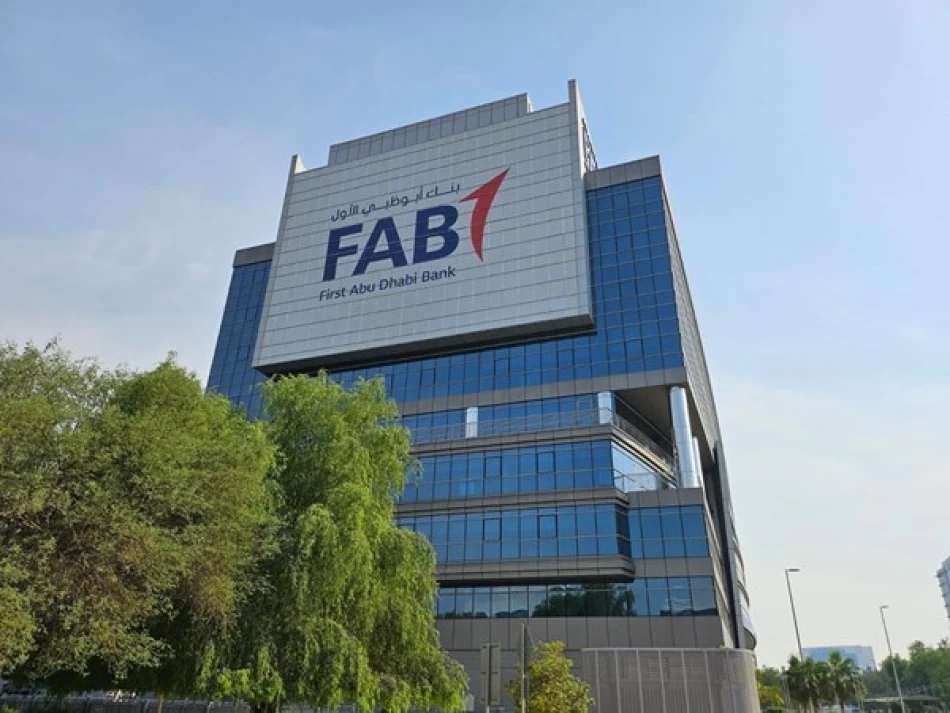
Abu Dhabi First and Abu Dhabi Housing Collaborate to Offer Additional Real Estate Financing
UAE Government Subsidizes 50% of Islamic Home Financing in Major Housing Push
Abu Dhabi's government has launched a groundbreaking housing initiative that will cover half of all profit rates on Islamic-compliant home loans up to AED 500,000, marking one of the region's most aggressive homeownership support programs. The partnership between First Abu Dhabi Bank and Abu Dhabi Housing Authority offers Emirati citizens additional property financing at competitive rates starting from 3.89% for five years, potentially reshaping the UAE's residential real estate landscape.
Government-Backed Housing Finance Revolution
This strategic partnership represents a significant shift in how Gulf states approach citizen welfare and housing affordability. Under the new arrangement, qualified Emiratis can access Sharia-compliant property financing through FAB's Islamic banking division, with the Abu Dhabi government shouldering 50% of profit costs on additional financing beyond the standard AED 1.75 million housing loan limit.
The program operates on an Ijara system, which complies with Islamic financing principles by structuring transactions as lease-to-own arrangements rather than interest-based loans. This approach not only serves the UAE's Muslim population but also positions Abu Dhabi as a leader in Islamic finance innovation.
Beyond Standard Limits
What makes this initiative particularly noteworthy is its flexibility for higher-value properties. Even when financing exceeds the AED 500,000 subsidy threshold, customers maintain the same profit rate, providing financial predictability in a market where luxury and mid-tier housing costs have risen substantially over recent years.
Regional Context and Strategic Timing
This housing push comes as Gulf states increasingly compete to retain and attract talent amid economic diversification efforts. The UAE faces unique demographic challenges, with expatriates comprising roughly 90% of the population, making citizen welfare and retention a national priority.
The timing aligns with the UAE's "Year of Community" initiative, but also responds to broader regional trends. Saudi Arabia's Vision 2030 includes ambitious homeownership targets, while Qatar has implemented similar citizen-focused housing programs. Abu Dhabi's approach, however, stands out for its integration of Islamic finance principles with government subsidies.
Market Implications and Economic Impact
From an economic perspective, this program could stimulate significant activity in Abu Dhabi's residential sector. By reducing financing costs for citizens, the government effectively increases purchasing power while maintaining market-driven pricing mechanisms.
For real estate developers and investors, the initiative signals sustained government commitment to the housing sector. The program's structure suggests authorities expect continued price appreciation in residential properties, making the subsidy a strategic investment in social stability rather than merely a welfare expense.
Islamic Finance Leadership
The emphasis on Sharia-compliant financing reinforces the UAE's position as a global Islamic finance hub. With Islamic finance assets projected to reach $3.7 trillion globally by 2024, Abu Dhabi's integration of government support with Islamic banking principles could serve as a model for other Muslim-majority nations grappling with housing affordability.
Long-term Strategic Vision
This initiative reflects a sophisticated understanding of social contract dynamics in the Gulf. By ensuring citizens can afford quality housing without compromising Islamic principles, Abu Dhabi addresses both economic and cultural priorities simultaneously.
The program's success will likely influence similar initiatives across the UAE's other emirates and potentially throughout the GCC region. For policymakers elsewhere, it demonstrates how targeted subsidies can support specific demographic groups while stimulating broader economic activity.
The partnership between FAB and Abu Dhabi Housing Authority represents more than a financing arrangement—it's a strategic bet on citizen loyalty and long-term social stability in an increasingly competitive regional landscape.
Most Viewed News

 Layla Al Mansoori
Layla Al Mansoori






